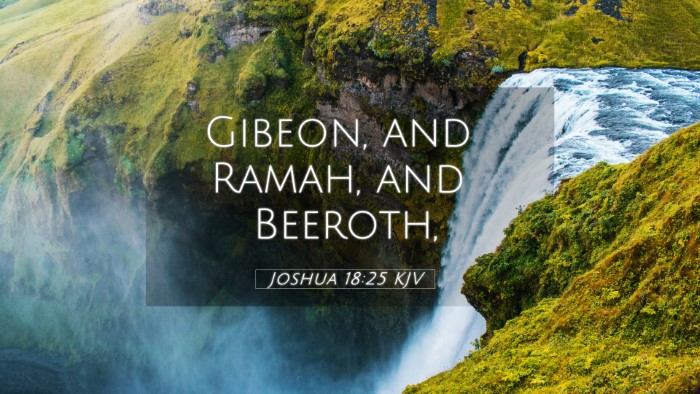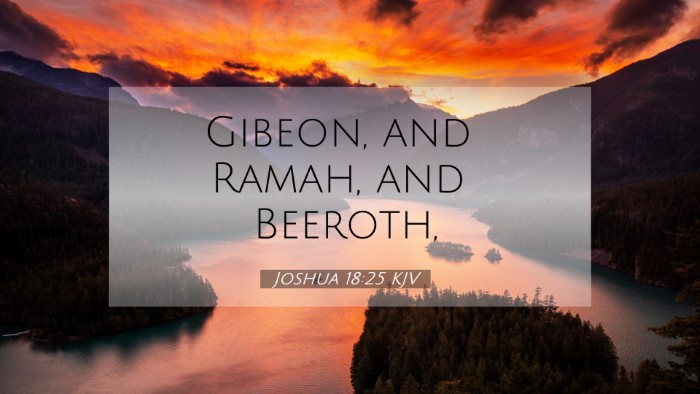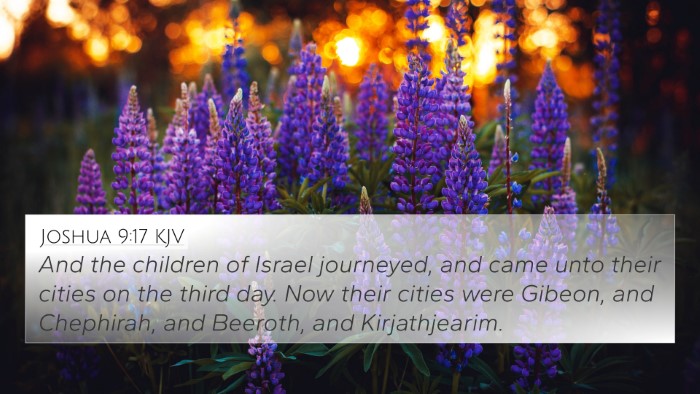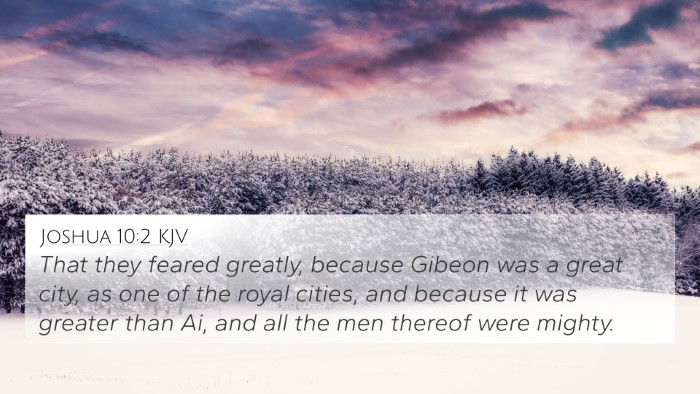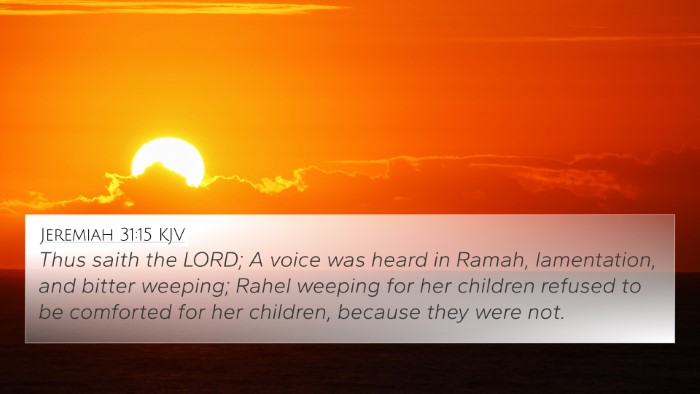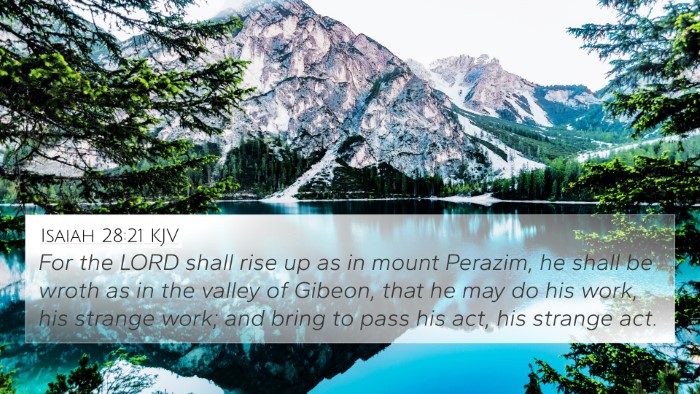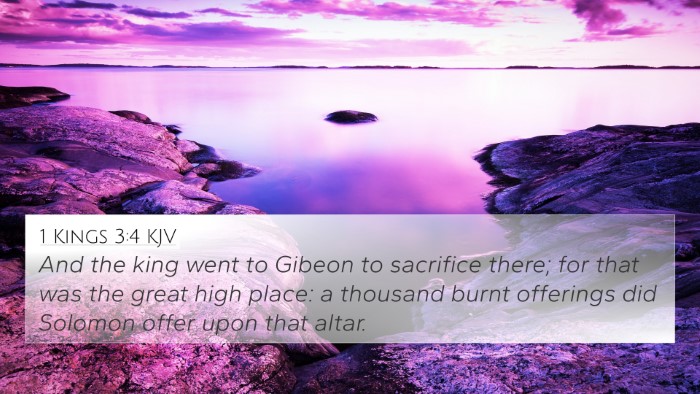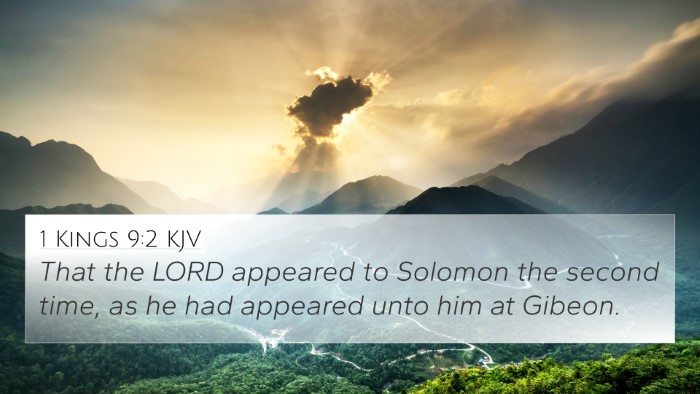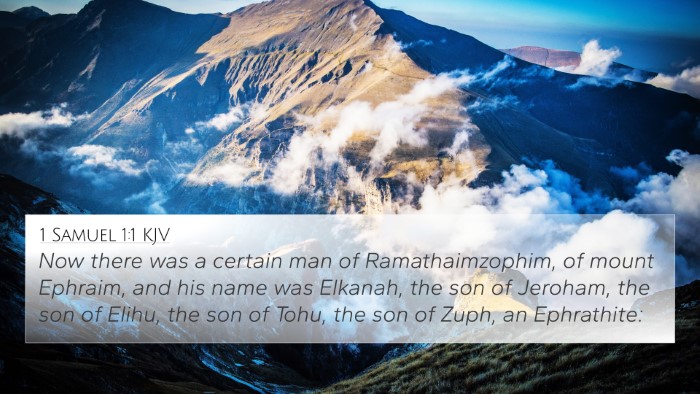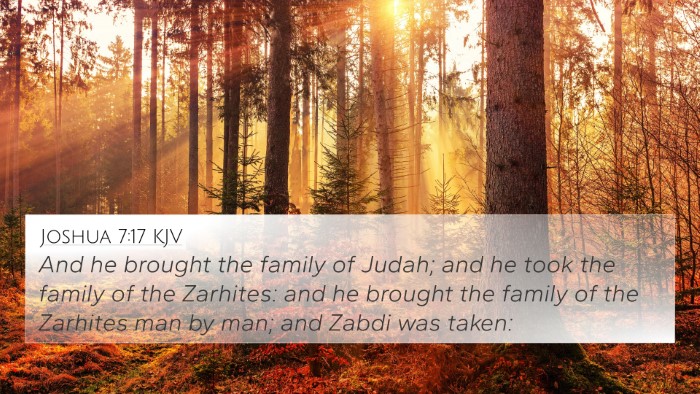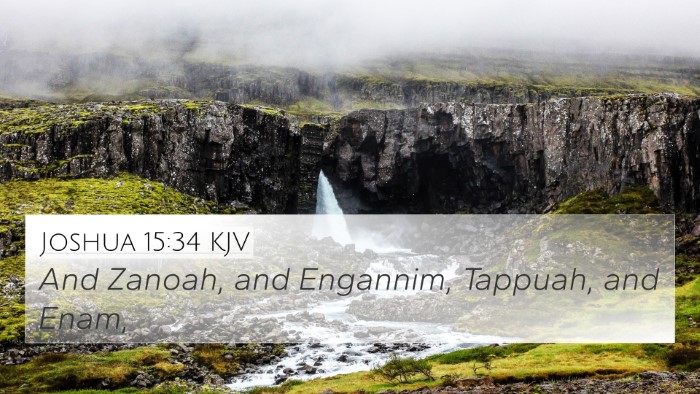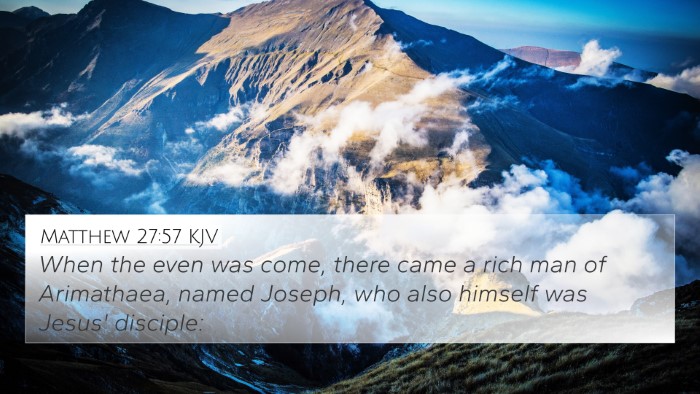Bible Verse Meaning: Joshua 18:25
Verse: "And Gibeon, and Ramah, and Beeroth," (Joshua 18:25, KJV)
Summary of Joshua 18:25
This verse is part of the allotment of land given to the tribe of Benjamin after the conquest of Canaan. The specific cities mentioned—Gibeon, Ramah, and Beeroth—are significant in the context of Israel's history and demonstrate the Lord's faithfulness in fulfilling His promises to His people.
Insights from Public Domain Commentaries
Matthew Henry: In his commentary, Matthew Henry emphasizes the importance of these locations. He notes that Gibeon was known for its craftiness (ref. Joshua 9), which led to a covenant with Israel. He highlights the significance of these cities in the context of God's sovereign plans for the Israelites and the regions they inhabited.
Albert Barnes: Barnes elaborates on the geographical and historical context of these cities. He explains that they were integral parts of Benjamin's territory and were strategically located near Jerusalem. He also points out that these cities play a role later in the narrative when considering the Kingdom of Judah.
Adam Clarke: Clarke provides insight into the nature of the cities listed. He comments on Beeroth, which is derived from the Hebrew word for 'wells', suggesting abundance and sustenance, a reflection of God providing for His people. He expresses that the mention of these cities reflects God's continuous guidance and provision.
Key Themes in Joshua 18:25
- Divine Providence: God's hand in the distribution of land among the tribes.
- Historical Significance: Each city represents a part of Israel’s multifaceted history.
- Fulfillment of Promises: The allotment signifies the completion of God's promise to Abraham.
- Strategic Locations: The importance of geography in God's plan for Israel’s future.
- Covenant Relationships: The ties between the Israelites and the cities reflect covenant dynamics.
Cross-References for Joshua 18:25
This verse relates to a network of scriptural connections:
- Joshua 9:3-15: The account of the Gibeonites and their covenant with Israel.
- 1 Samuel 10:26: Reference to Gibeah, which is closely related to Gibeon geographically.
- 2 Samuel 21:2: Another mention of Gibeon in the context of David's reign.
- Isaiah 10:29: Prophecy regarding the regions around Jerusalem including Gibeon.
- Matthew 2:18: Ramah is referenced in a prophetic context during the New Testament.
- Hebrews 11:30-31: The faith of Joshua and the Israelites ties into their inheritance.
- Acts 7:2-4: Stephen's recounting of Israel's history also connects to the land allotted.
Understanding Connections Between Bible Verses
In studying Joshua 18:25, it is essential to understand the broader narrative of the Israelites' conquest of Canaan and how these locations are interwoven throughout Scripture. By employing tools for Bible cross-referencing, one can explore the thematic Bible verse connections revealed in this passage.
Comparative Bible Verse Analysis
By engaging in a comparative analysis of parallel verses such as Joshua 9 and the prophetic references in Isaiah, it becomes evident how the towns and cities mentioned here serve multiple roles in God's overarching plan.
Using Bible Cross-References for Deeper Study
For a thorough examination of these connections, utilizing a Bible cross-reference guide can enhance understanding. Identifying connections between Old and New Testaments enriches the study of God's continuous narrative from creation through to the Church.
Conclusion
Joshua 18:25 highlights significant interactions within Scripture, showcasing how interconnected Biblical text can enhance understanding of God's covenant. By employing a systemic approach to Bible cross-referencing when studying this passage, believers can gain greater insight into their faith and the cohesive story of redemption throughout the Bible.

